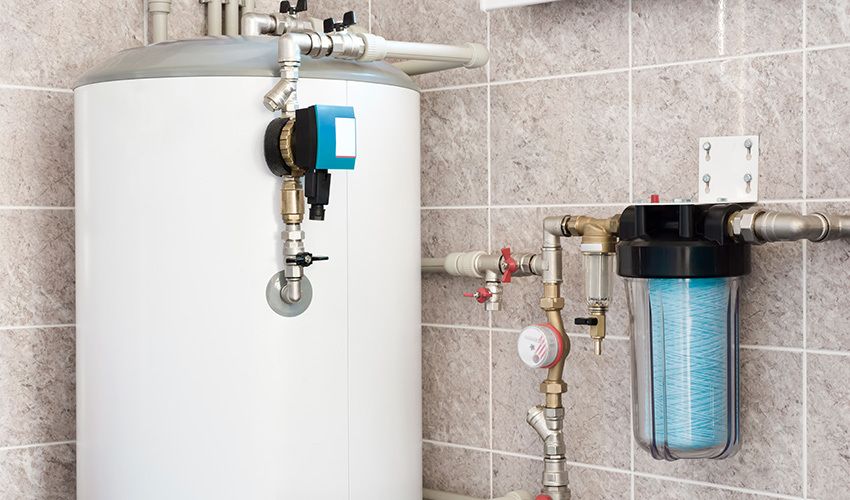Schedule a Plumber This Thursday to Get 50$ OFF
Schedule a Plumber This Thursday to Get 50$ OFF

Not all water is created equal. Some water is considered “hard,” meaning it has high levels of minerals like calcium and magnesium. According to Mr. Rooter Plumbing, these minerals aren’t harmful to drink but can cause problems in your home’s plumbing system, appliances, and more. That’s why many homeowners choose water softener installation.
Hard water contains high dissolved minerals, especially calcium and magnesium. These minerals don't pose any immediate health hazards to people, but an accumulation may eventually pose some issues. When hard water flows through pipes, it can leave behind a chalky buildup called limescale.
You likely have hard water if you’ve noticed spots on your dishes after washing them, a film on your shower doors, or stiff, scratchy clothes after doing laundry.
Protecting your plumbing is one of the primary motivations for installing a water softener. Hard water can lead to costly repairs and shorten the lifespan of pipes and appliances.
Hard water has the power to damage even newer pipes. Limescale builds up, narrowing pipes and increasing water pressure. Over time, this extra strain on pipes could eventually lead to leaks or burst pipes and appliances using water, such as dishwashers or washing machines, having to work harder, leading to frequent breakdowns and an increase in the need for plumbing repair services.
A water softener removes calcium and magnesium before entering your home’s plumbing system. Here are some specific advantages:
If you’re not sure whether a water softener is right for you, there are a few signs that can indicate it’s time to consider water softener installation:
When installing a water softener, hiring a professional plumber is generally a good idea. A licensed plumber will assess your home’s plumbing system and determine the best location for the water softener. Proper water softener installation requires knowledge of plumbing systems to ensure the softener works effectively without causing any issues.
A professional plumbing service can also advise you on the right type of water softener for your home. Depending on your household's water usage, different models and capacities exist.
Once your water softener is installed, regular maintenance is essential to keep it running smoothly. Most water softeners use salt to help remove minerals from the water, so you’ll need to check and refill the salt supply periodically. Many homeowners schedule annual maintenance with a plumbing service to ensure their water softener remains in optimal condition. Regular maintenance helps catch any minor issues early on, reducing the likelihood of needing more extensive plumbing repair services.
Investing in a water softener can improve your water quality, extend the life of your plumbing and appliances, and reduce the need for frequent plumbing repair services in Rogers, TX. With cleaner, softer water, your skin, hair, dishes, and clothes will feel and look better, and your home’s plumbing system will benefit from reduced limescale buildup.
If you’re a homeowner who has dealt with clogs or other plumbing issues or simply eager to maintain your plumbing system regularly, you might’ve heard of a technique called sewer…
In addition to being a crucial component of every home's plumbing system, sewer lines are also frequently disregarded because they are out of sight. Nonetheless, they shouldn’t’ be out of…
When to Get a Drain Replacement Have you ever considered what happens to the water after using it? Water gets drained through our drains, but what happens…